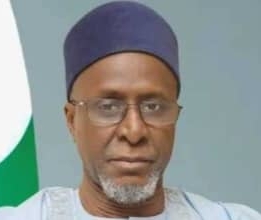529
By Tracy Moses
The Federal Government of Nigeria has announced plans to comprehensively review the National Policy on Drought and Desertification.
The Minister of Environment, Engr. Balarabe Lawal, made this known on Wednesday in Abuja during a stakeholders’ workshop convened to evaluate and revise the current policy framework.
Engr. Lawal emphasized that the triple environmental crises of desertification, land degradation, and drought have far-reaching implications globally, intensifying challenges such as poverty, food insecurity, biodiversity decline, water shortages, and displacement.
He pointed out that Nigeria is significantly affected by these issues, with between 50 and 75 percent of land in some states already experiencing the adverse impacts of desertification.
The Minister stressed the need for the revised policy to address new environmental realities and close existing gaps, while also advocating for a participatory, grassroots-driven approach that ensures the inclusion of all relevant stakeholders, especially those in affected communities.
He underscored the importance of integrating key principles such as precaution, sustainability, fairness across generations, and gender equity into the new policy framework.
Additionally, Engr. Lawal noted that the updated policy must align with other sectoral policies, particularly those in agriculture, mining, urban development, and climate change, to ensure a coordinated national response.
He expressed appreciation to the World Bank for its financial assistance towards the review process through the Agro-Climatic Resilience in Semi-Arid Landscapes (ACReSAL) project.
In his earlier remarks, the Permanent Secretary of the Ministry, Mahmud Adam Kabari, urged all participants to contribute meaningfully to the review process. He said a robust and inclusive policy would help mitigate the effects of drought and desertification while paving the way for a more sustainable and resilient Nigeria.



